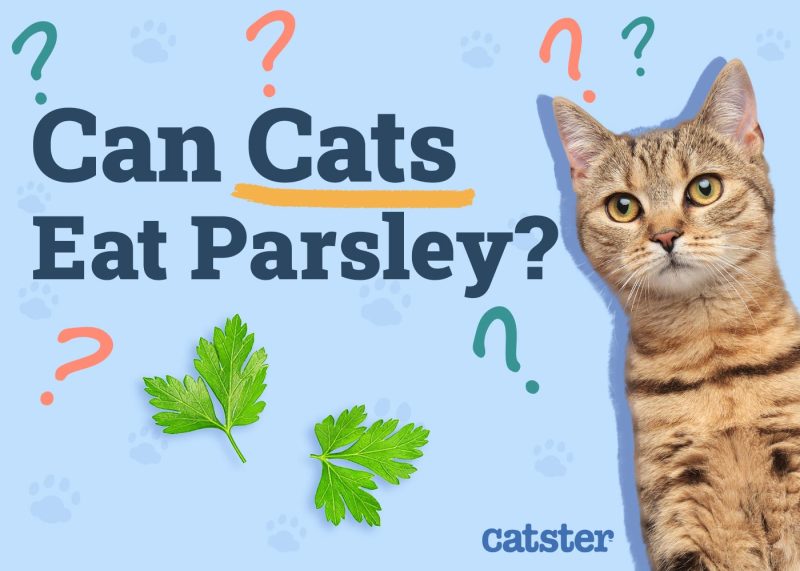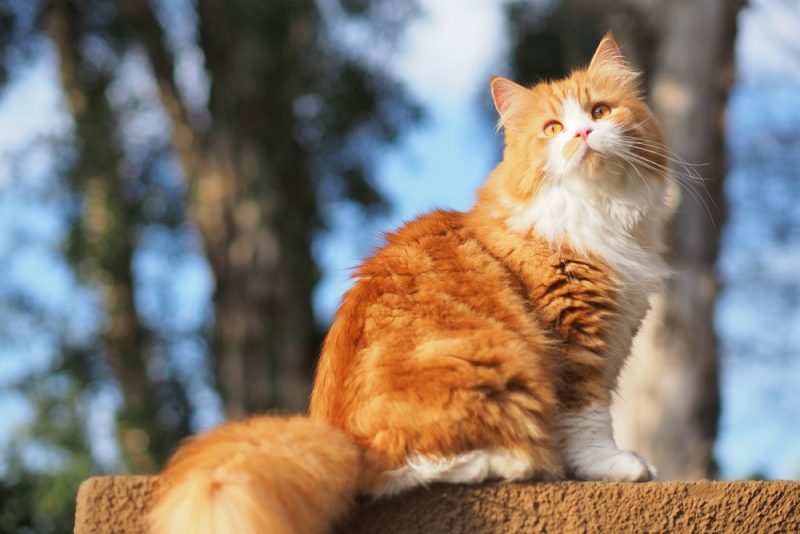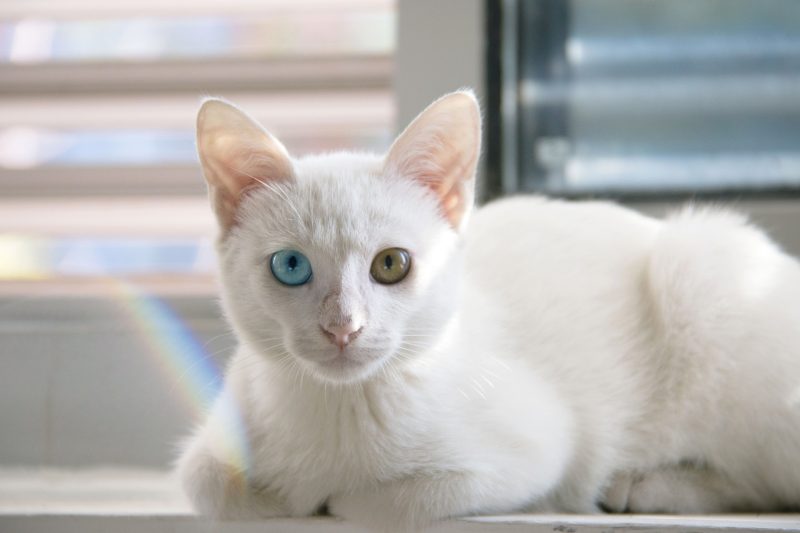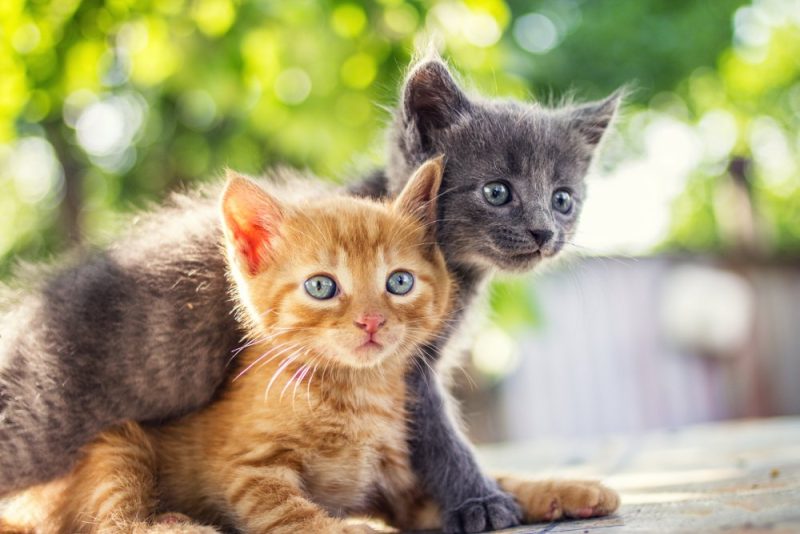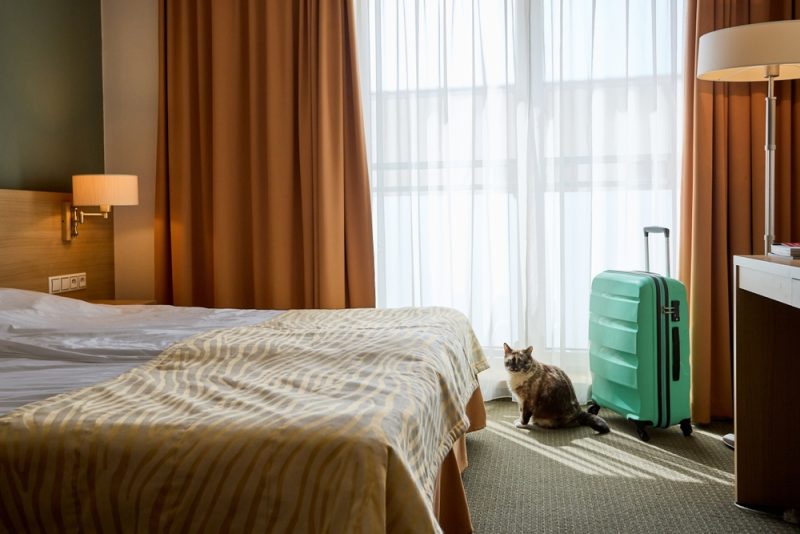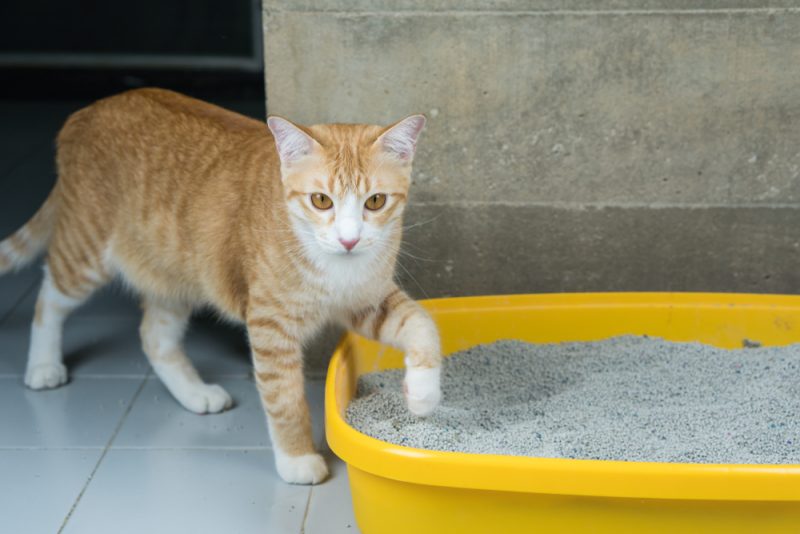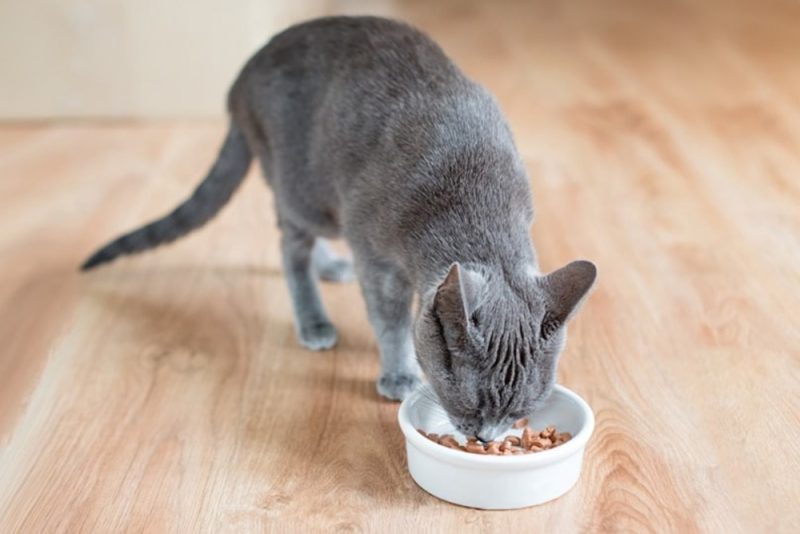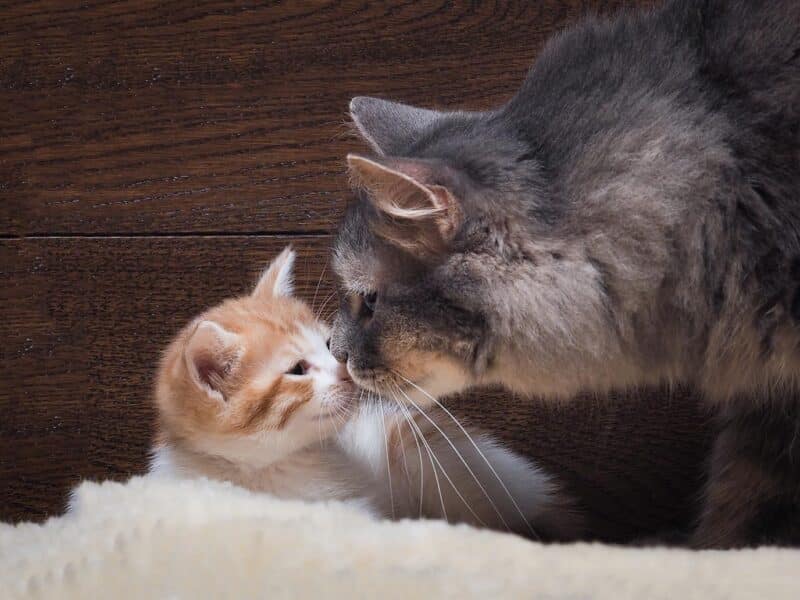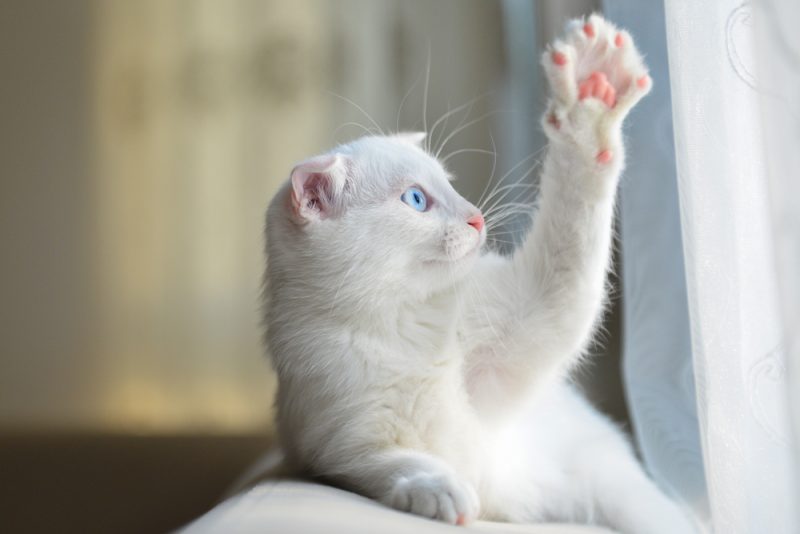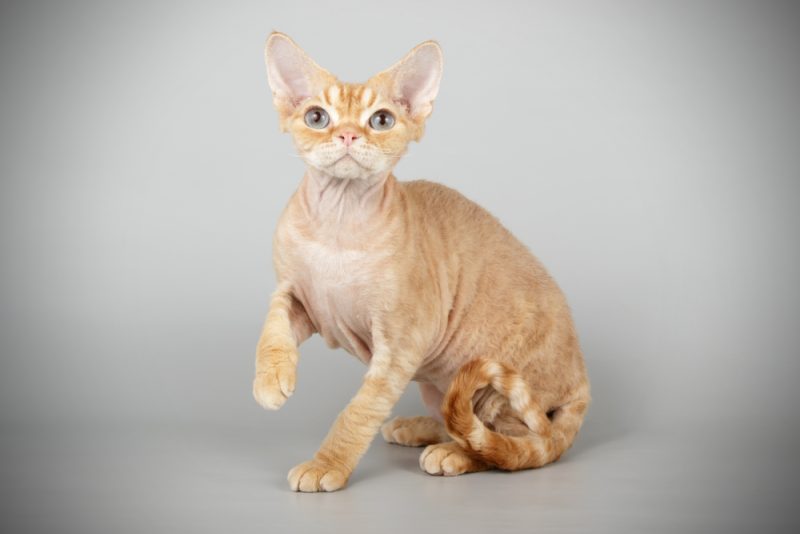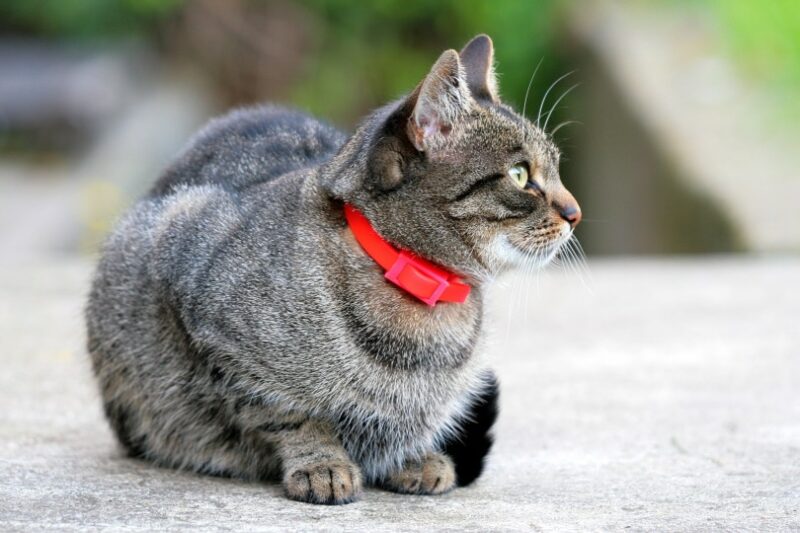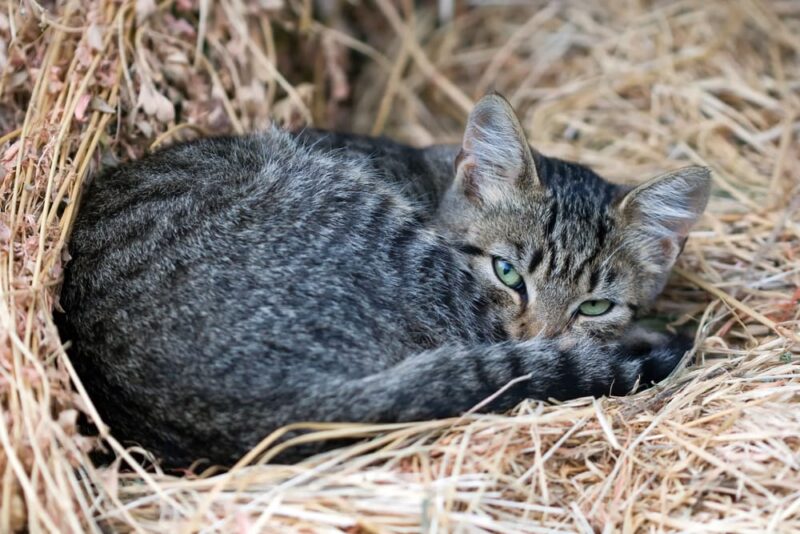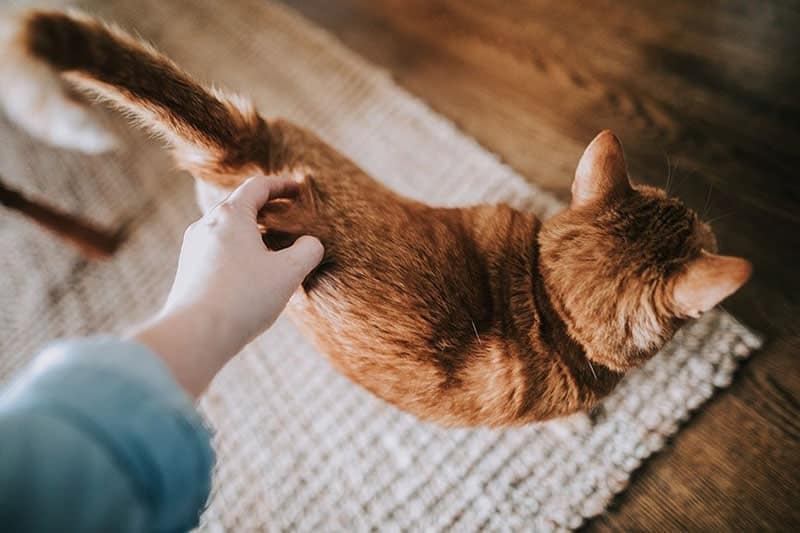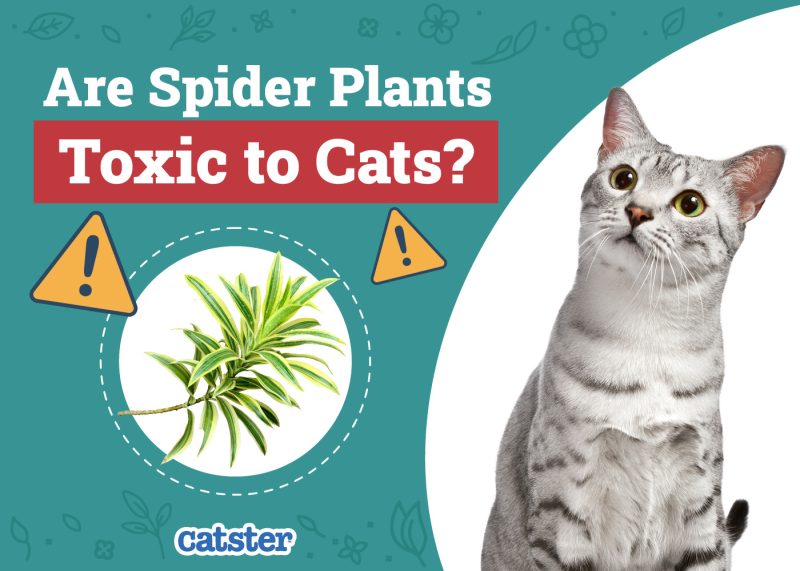Have you ever caught your kitty trying to take a nibble of the plants in your herb garden? While you may be asking yourself if your cat has turned into a vegetarian, the truth is that it is perfectly natural for felines sometimes to develop a taste for greenery. The more important question you should ask is if the plant your cat is munching on is safe to eat.
If you are asking yourself “Can cats eat parsley?” you don’t have to worry. Parsley is safe for cats to consume as long as it is in moderation. Let’s take a closer look at everything you need to know about cats eating parsley.

Is Parsley Safe for Cats?
Parsley is an aromatic herb used for culinary purposes. Although many enjoy garnishing their fish, steak, chicken, or rice with this delicious plant, is parsley toxic to cats?
Parsley is safe for cats to eat, but that doesn’t mean you should add it to every meal your cat consumes. When eaten in moderation, parsley is safe and even beneficial for your feline friend.
The Health Benefits of Parsley
Parsley is overflowing with health benefits. It’s packed with potassium, folate, and essential vitamins, including vitamins A, C, and K. It’s also rich in antioxidants supporting the immune system, folates that prevent anemia, and vitamin A, which helps maintain healthy eyes.
So, not only is parsley safe for cats, but it can also help boost their immune system, promote circulatory health, and aid in good eyesight. Additionally, parsley supports the urinary tract due to its diuretic properties.
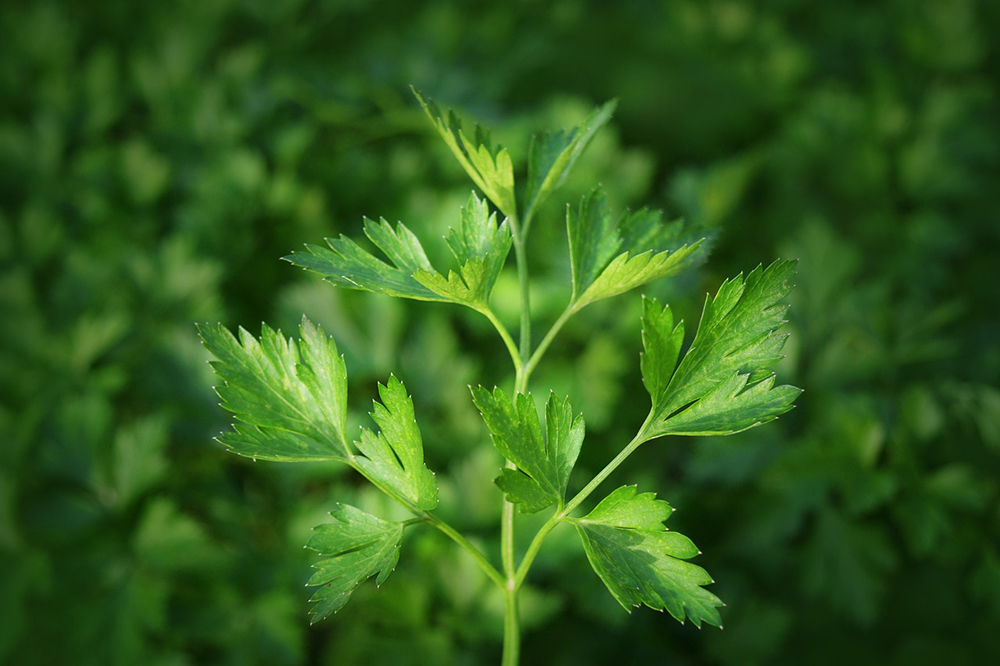
Is Parsley Toxic to Cats?
As mentioned earlier, you should always feed your cat parsley in moderation. If consumed in large amounts, the herb can be toxic to your pet. Your cat could suffer from photosensitization, a condition in which their skin becomes overly sensitive to sunlight.
Additionally, it’s critical never to serve spring parsley. Even in small portions, it’s toxic to cats. Always avoid curly parsley varieties and stick to the flat-leafed variety.
While sharing human food with your cat is not always safe, we have a solution that will keep you both smiling. We've currently got a 40% discount to share on the HUMAN-GRADE premium cat food that ranked number #1 in our reviews! CLICK HERE & use code Catster24 to SAVE 40% on Smalls cat food!
Parsley Water for Cats
One safe way to treat your cat to parsley is by giving serving parsley water. Parsley water also benefits felines who suffer from urinary tract ailments. It has diuretic properties and can prevent kidney stones and renal gravel formations.
Do not give your cat parsley water over long periods. Moderation is key. Only give them one to two teaspoons of parsley per day.
- Boil one cup of water.
- Pour the boiled water into a container that contains a few pinches of parsley.
- Let the mixture cool to room temperature.
- Drain off the water.
- Store the unused mixture in your fridge to maintain freshness.
If your cat is pregnant or nursing, do not give her parsley water. Parsley can cause uterus contractions, leading to potential miscarriages. It can also significantly slow down—or even stop—milk production.
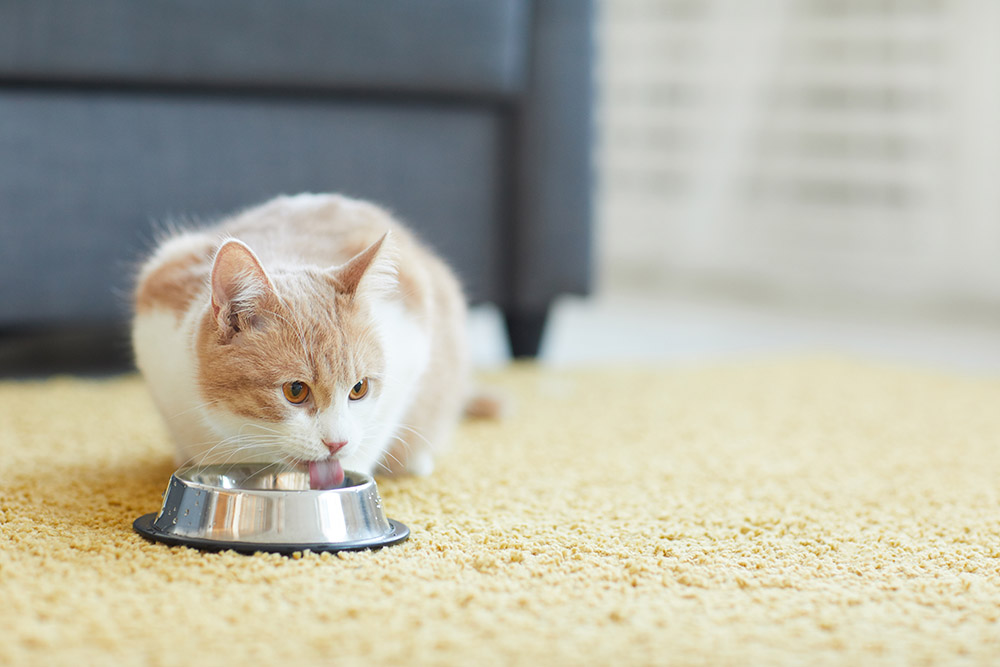

Conclusion
Your cat can eat parsley in moderation. The best way to give your cat the herb is by offering parsley water. Never give your cat large amounts of parsley since this could be toxic, and never feed her spring parsley.
Always talk with a vet before altering your cat’s daily diet in any way.
Need veterinary advice but can't get to the clinic? Catster recommends PangoVet, our online veterinary service. Talk to a vet online and get the answers and advice you need for your cat without having to leave your living room — all at an affordable price!

Related Reads:
